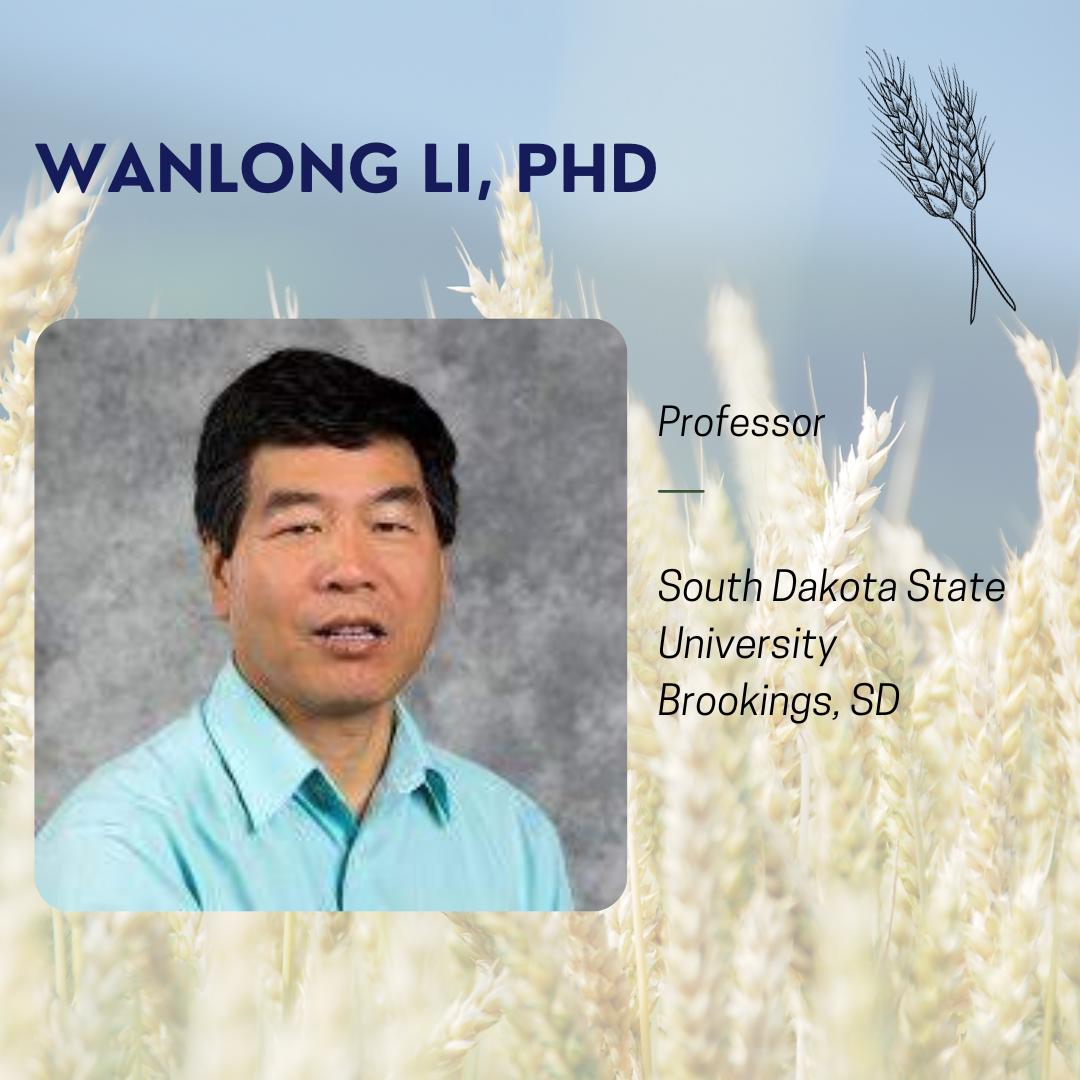Featured Researcher Bio - Wanlong Li 2024

Meet Wanlong Li, a professor of epigenetics in the Department of Biology and Microbiology at South Dakota State University (SDSU). Li is one of the first PI’s funded under the Transformational Science (TSCI) Research Category. His research focuses on transferring Fhb7 from wheat into barley using CRISPR-mediated targeted gene insertion.
Studying the Genetics of Wheat from Chine to the U.S. Heartland
Li is originally from China. He received both his bachelor of science and master of science degrees in agronomy from Northwest A&F University. He then attended Nanjing Agricultural University for his doctorate degree in plant genetics and breeding where his research focused on using cytogenetics and molecular genetics to transfer alien genes from wild relatives into wheat.
Fusarium head blight is a major disease in the wheat-growing regions of China, particularly in the lower valley of Yangtze River, where Nanjing Agricultural University is located. So, when Li first came to the U.S. as a visiting professor, it seemed fitting that he worked on the molecular interactions between wheat and Fusarium graminearum through a McKnight Foundation-supported collaborative project between Nanjing Agricultural University and Kansas State University. He then later transitioned into a research assistant professor position at Kansas State University working on the genetics, genomics, and evolution of wheat.
Since then, Li has moved to South Dakota State University where he has worked his way up from an assistant professor to a full professor in the Department of Biology and Microbiology. His lab’s research focuses on wheat genetics and the molecular biology behind yield traits, disease resistance, and abiotic stress.
Working to Transfer Fhb7 from Wheat into Barley
Li joined the USWBSI as a new PI in FY21 when his pre-proposal was one of the first to be awarded funding under the newly formed TSCI Research Category. While progress has been made at developing FHB resistant wheat cultivars through conventional breeding to identify and manipulate major quantitative trail loci, such as Fhb1 and Fhb7, progress in barley is lacking due to a scarcity of resistance sources. Also, reproductive barriers between the two species limit the use of wheat genes to breed for resistance in barley. In his TSCI project, Li is working to transfer Fhb7, which codes for a glutathione S-transferase functioning in the detoxification of mycotoxins including deoxynivalenol (DON), into barley using CRISPR-mediated targeted gene insertion. The hope is that Fhb7 insertion lines will aid in enhancing FHB resistance and reduce DON accumulation in barley. Li enjoys working with the USWBSI and FHB community. “I like the laser-focused goal of the USWBSI, everything about scab. As a freshman member of the USWBSI community, I benefit a lot from the collaboration network,” said Li. He recently presented his work to the FHB community at the 2023 National Fusarium Head Blight Forum held in Cincinnati, Ohio.
For more information about Dr. Wanlong Li's research, visit his faculty webpage.
To learn more about others in the FHB community, check out all the previous USWBSI Featured Researchers.
